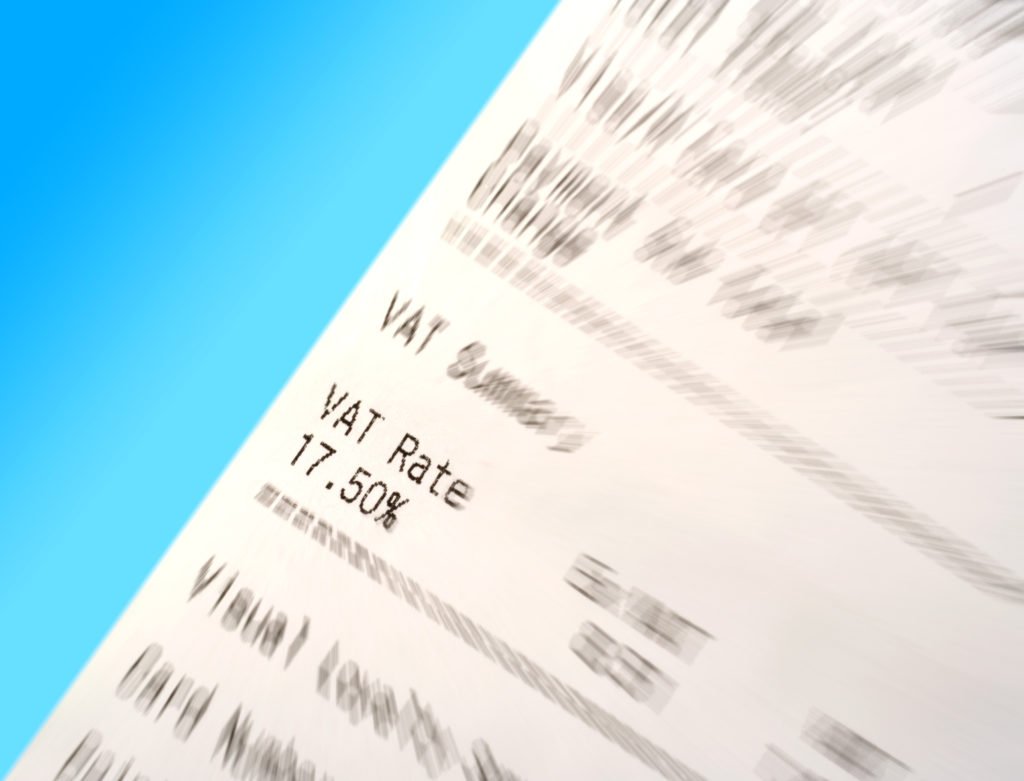Having spent extensive time with expat circles in Europe, no one is more self-flagellating than Americans. One complaint that inevitably comes up is that sales tax in the US isn’t included in the sticker price. Unlike in Europe, you’ll pay more at the register in most US states than the price you saw on the shelf since sales tax will be added on.
Although indistputably more convenient, does convenience necessarily translate to economic efficiency and ethical correctness? Far from it. On the contrary, including sales tax in the price tag is immoral and bad for the economy for multiple reasons.
Why Do Some Countries Include Sales Tax in the Price?
First, let’s make one thing clear. Many people seem to believe this is a simple cultural difference. Why can’t American stores just include sales tax? However, the reality is that EU shops don’t do it by choice—it’s mandated by the EU government, which is usually the case for other nations where tax is included.

Note: This is an affiliate listing, and I may receive a commission if you purchase the product. These commissions allow me to continue writing, giving you an optional way to support me and my content. I never recommend books or other products that I have not read or used personally.
Mandating Sales Tax Inclusion Is Authoritarian
Telling businesses what they can and cannot write on their price tags should be obviously authoritarian for anyone who believes in the right to free enterprise, but it’s actually more insidious than that. Even in the US, the government is requiring businesses to act as their tax collectors. In other words, they are forcing business owners to perform free labor, a clear violation of their rights. Mandating businesses also include the sales tax in their sticker prices is further labor they must perform without compensation, that of tax collector and accountant.
Mandating Sales Tax Inclusion Hides the Tax Rate
Expats always put it the same way. Why can’t American businesses just write the correct price on the sticker?
As a business owner, I would reply: I did! What I wrote on the sticker is what I’m charging. If the government is charging you something else, take it up with them. If you order a third-party delivery service to pick up your groceries, do you expect their charge to be included with that of the groceries? Of course not. They’re separate entities. The government is a separate entity as well, and their sales tax charge is their problem.

I’ll get into the importance of accurate pricing shortly, but for now, note that mandating the sales tax’s inclusion in the sticker price allows the government to hide what they’re charging and create a disconnect in the mind of the consumer.
Many proponents of the practice argue that one can see the tax rate on the receipt, but this is a fundamentally flawed argument. This requires you to pay the tax before you can ever see how much it was.
More than the absolute amount, though, including the tax allows governments to easily raise the rate without people noticing as easily. In fact, this is one of the reasons Canada has avoided mandating the practice along with simple transparency.
This principle has been evidenced quite blatantly in Japan. VAT was originally five percent in the East Asian nation, and many shops included it in their sticker prices simply as a matter of convenience for their customers. However, when the government raised the rate to eight percent, they stopped. Then in 2019, the government raised the rate to 10 percent and shortly thereafter mandated businesses include it in the sticker price.
Sales Tax Is Corrupt in the First Place
It always baffles me that the people who seem most ready to support mandated sales tax inclusion are progressives. Even if you are “pro-tax” because you see it as a means to redistribute wealth, sales taxes and VAT are widely recognized as regressive taxes. This means that they place a higher burden on the poor.

Consider for example a wealthy person earning making $10,000 per month and a poor person making $1,000 per month. They both go to purchase a laptop they need to connect to the internet, access information and improve their lives. Assuming a sticker price of $1,000 and a sales tax rate of 10 percent, both will pay the same tax on the purchase: $100.
As you can see, this $100 is a far greater burden for the poor person. It’s 10 percent of their monthy income versus just one percent for the wealthy person.
When the government collects revenue from salex taxes and VAT, it is disproportionately taking money from the poor and creating barriers to their upward mobility. You should not be promoting something that helps the government with this oppressive tax scheme, even something as simple as mandating its inclusion in the sticker price. If you do so and call yourself “progressive,” you should admit that you’re really only advocating for it out of convenience.
Mandating Sales Tax Inclusion Harms Businesses
The separation of surcharges like sales tax has a name in economics: partitioned pricing. Numerous studies have looked into the effects of partitioned pricing, and a meta-analysis from the American Marketing Association found that these point to a benefit to business when individual charges are listed and charged separately, rather than included altogether in one total price.
Really, this just takes a bit of common sense. If I can put $99 on my sticker price, I’ll make more sales than if I have to put $109. Proponents of mandated sales tax inclusion often respond that it would apply to all businesses equally, so there would be no effect. However, this relies on a fundamental misunderstanding of the market. Prices serve many more purposes than just a comparison to competition. This is the crux of why mandating sales tax inclusion is a bad idea, so let’s dive in a little deeper…

Note: This is an affiliate listing, and I may receive a commission if you purchase the product. These commissions allow me to continue writing, giving you an optional way to support me and my content. I never recommend books or other products that I have not read or used personally.
Mandating Sales Tax Inclusion Obfuscates Prices
Prices are arguably the primary reason that markets distribute resources so efficiently and provide for economic growth and prosperity. They serve as immediate symbols of massive amounts of information, allowing the entire market to function as a single computative agent even when the individuals within that market do not have all the information.
A common example is that of the American car manufacturer using aluminum sourced from Africa. When a natural disaster destroys a mine, there is less aluminum on the market. The aluminum mining firm must raise their prices to make ends meet. Now the car manufacturer must purchase aluminum at a higher cost until it reaches a point that, based on factors relevant to their operations, they switch to a less expensive alternative.
The car manufacturer does not need to read the news and watch for natural disasters in Africa. The aluminum miners do not need to educate themselves on car manufacturing. As a potential car buyer, you do not need to know any of this. All parties can operate effectively with one simple piece of information: the price.
When it comes to partitioned pricing, researchers have looked into two main signals: sacrifice and value. The price tag tells consumers how much they have to sacrifice to buy the product. Do they want that $500 TV or 100 $5 cups of coffee?
In this case, including sales tax in the sticker price doesn’t matter much because they’ll have to decide to sacrifice that much either way, but as I talked about with tax rate transparency, it is nice to know what you’re sacrificing for? Is $550 worth it, not for a TV alone, but for a TV and $50 worth of roads filled with potholes?
More important is the signal of value. Value is highly subjective. Every individual prizes certain things over others. If you pay $500 for a TV, you value the TV more than you value the $500 in your bank account. Meanwhile, the seller values the $500 more than they value the TV.
Yet when you see a sticker price of $550 that includes the sales tax, you instinctively calculate whether you value the TV more than $550. However, the seller is still only selling the TV because they value $500 more than it. See the disconnect? And this is only the tip of the iceberg.
There are certainly more egregious obfuscations of prices like price controls, but the fact of the matter is that forcing businesses to include the sales tax in their sticker prices introduces ineffeciency to the market and our economy. Whether you’re a pro-tax progressive or a tax-is-theft libertarian, you should not be in favor of these types of laws.
